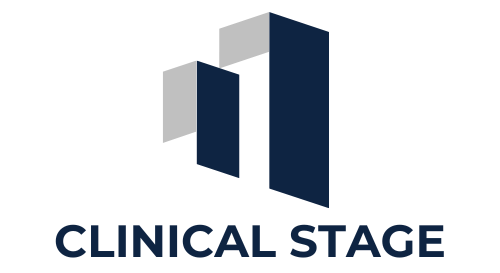Insights from Notable Labs' Predictive Precision Medicine Platform
The landscape of cancer treatment is undergoing a remarkable transformation, driven by advancements in precision medicine and innovative approaches to clinical trials. Traditional methods of cancer treatment, often based on a one-size-fits-all model, are being replaced by more personalized and effective therapies tailored to the unique genetic and molecular profiles of individual patients. This shift towards personalized medicine is essential in addressing the complexity and variability of cancer, ultimately improving patient outcomes and quality of life.
At the forefront of this revolution is Notable Labs, a company dedicated to leveraging cutting-edge technologies to develop personalized cancer therapies. Central to their approach is the Predictive Precision Medicine Platform (PPMP), a sophisticated system designed to identify the most effective treatments for each patient by analyzing their specific genetic and molecular characteristics. By integrating advanced computational algorithms with high-throughput drug screening techniques, Notable Labs' PPMP offers a promising solution to the challenges of cancer treatment, paving the way for more targeted and successful therapies.
Let’s explore the evolving landscape of cancer treatment, delve into the innovative work being done by Notable Labs, and highlight the importance of personalized and effective therapies in the fight against cancer. Through the lens of predictive precision medicine, we will uncover how these advancements are transforming clinical trials and offering new hope to patients worldwide.
What is Predictive Precision Medicine?
Predictive precision medicine is a groundbreaking approach to cancer treatment that leverages advanced technologies to tailor therapies to the unique characteristics of each patient's cancer. Unlike traditional treatments that apply a uniform strategy, predictive precision medicine focuses on identifying specific genetic and molecular alterations in a patient’s tumor to predict how they will respond to various treatments. This personalized approach aims to enhance the efficacy of treatments while minimizing adverse effects, ultimately improving patient outcomes.
At the heart of predictive precision medicine are advanced technologies such as artificial intelligence (AI) and machine learning. These technologies enable the analysis of vast amounts of genetic and molecular data, uncovering patterns and insights that would be impossible to detect through conventional methods. AI algorithms can process complex datasets, identifying correlations between genetic mutations and treatment responses. Machine learning models continuously improve as they are exposed to more data, refining their predictive capabilities and providing increasingly accurate recommendations for personalized treatment plans.
Notable Labs' Predictive Precision Medicine Platform (PPMP) exemplifies the power of these advanced technologies in transforming cancer treatment. The PPMP integrates AI and machine learning with high-throughput drug screening to analyze the genetic, molecular, and tumor profiles of individual patients. Here’s how it works:
Genetic and Molecular Profiling: The PPMP starts by sequencing the patient's tumor DNA to identify specific genetic mutations and alterations. This genetic profiling provides a detailed map of the cancer’s molecular landscape, highlighting potential targets for therapy.
High-Throughput Drug Screening: The platform then uses high-throughput screening techniques to test a wide array of drugs on patient-derived tumor cells. This process helps to determine which drugs are most effective at inhibiting the growth of the cancer cells, providing real-time insights into potential treatment options.
Data Integration and Analysis: AI and machine learning algorithms analyze the genetic and molecular data alongside the drug screening results. These technologies identify patterns and correlations that predict how the patient’s cancer will respond to different treatments. By considering the unique genetic makeup and molecular profile of the tumor, the PPMP can recommend personalized treatment strategies that are more likely to succeed.
Predictive Modeling: The platform develops predictive models based on the integrated data, offering a comprehensive understanding of which treatments are most likely to be effective for the patient. These models are continuously refined as new data becomes available, ensuring that the recommendations remain up-to-date and relevant.
By harnessing the capabilities of predictive precision medicine, Notable Labs’ PPMP provides a powerful tool for oncologists, enabling them to make more informed decisions about patient care. This approach not only improves the likelihood of treatment success but also reduces the risk of unnecessary side effects, making it a vital component in the evolving landscape of cancer treatment.
Benefits of Predictive Precision Medicine in Clinical Trials
Predictive precision medicine offers numerous advantages that enhance the efficiency and efficacy of clinical trials. By leveraging advanced technologies to tailor treatments to individual patients, this approach not only improves patient outcomes but also accelerates drug development and reduces risks associated with clinical trials.
Identification of Responders
One of the most significant benefits of predictive precision medicine is its high accuracy in identifying patients who are likely to respond to specific treatments. Through detailed genetic and molecular profiling, the Predictive Precision Medicine Platform (PPMP) can pinpoint biomarkers that indicate a patient’s potential response to a therapy. This targeted approach ensures that patients receive treatments tailored to their unique cancer profiles, leading to improved outcomes.
High Accuracy: By focusing on the genetic and molecular characteristics of tumors, predictive precision medicine can accurately identify responders. This reduces the trial and error often associated with conventional treatments and ensures that patients receive the most effective therapy from the outset.
Improved Patient Outcomes: Tailored treatments based on predictive precision medicine can significantly enhance patient outcomes. By administering therapies that are specifically suited to a patient’s cancer profile, there is a higher likelihood of treatment success and reduced adverse effects. This personalized approach not only improves survival rates but also enhances the quality of life for patients undergoing treatment.
Accelerating Drug Development
Predictive precision medicine also plays a crucial role in streamlining the drug development process. By focusing on the most promising therapies and patient populations, it helps pharmaceutical companies and researchers bring new treatments to market more efficiently.
Focus on Promising Therapies: The PPMP allows researchers to identify which therapies are most likely to be effective based on genetic and molecular data. This targeted approach ensures that resources are concentrated on developing treatments with the highest potential for success, accelerating the overall drug development timeline.
Streamlining Drug Development: By accurately identifying responsive patient populations, predictive precision medicine reduces the need for extensive trial and error in the drug development process. This targeted focus not only speeds up clinical trials but also lowers the costs associated with bringing new therapies to market. The streamlined process enables faster approval and availability of life-saving treatments for patients in need.
Risk Reduction in Clinical Trials
Predictive precision medicine significantly reduces risks associated with clinical trials by enabling the selective enrollment of patients who are predicted to respond favorably to treatments. This targeted approach leads to higher response rates and more efficient clinical trials.
Selective Enrollment: The PPMP's ability to predict treatment responses allows for the selective enrollment of patients most likely to benefit from the therapy being tested. This selective process enhances the efficiency of clinical trials by focusing on a well-defined patient population.
Higher Response Rates: By enrolling patients who are genetically and molecularly predisposed to respond to specific treatments, clinical trials can achieve higher response rates. This increases the likelihood of demonstrating the efficacy of a new therapy, facilitating faster regulatory approval.
Efficient Clinical Trials: The predictive power of the PPMP ensures that clinical trials are conducted with greater precision and efficiency. By minimizing the inclusion of non-responders, trials can be completed more quickly and with fewer resources, ultimately speeding up the drug development process and bringing effective treatments to market sooner.
Predictive precision medicine represents a transformative approach to cancer treatment and clinical trials. By harnessing advanced technologies like AI and machine learning, platforms like Notable Labs’ PPMP can tailor therapies to the unique genetic and molecular profiles of patients. This personalized approach not only improves patient outcomes but also accelerates drug development and reduces risks in clinical trials. As the healthcare industry continues to embrace predictive precision medicine, it holds the promise of revolutionizing cancer care and bringing more effective treatments to patients faster than ever before.
Case Study: Acute Myeloid Leukemia (AML) Trial
One of the most compelling demonstrations of the power of predictive precision medicine is seen in a clinical study focused on Acute Myeloid Leukemia (AML). AML is a particularly aggressive form of cancer that affects the blood and bone marrow, characterized by rapid disease progression and a poor prognosis. The complexity and heterogeneity of AML make it a challenging disease to treat, underscoring the need for personalized and effective therapeutic strategies.
Overview of the Clinical Study Focused on AML
In this clinical trial, Notable Labs employed their Predictive Precision Medicine Platform (PPMP) to evaluate the efficacy of the VenDec combination therapy—a regimen combining venetoclax and decitabine. The study aimed to determine whether the PPMP could accurately predict patient responses to this specific therapy, thereby demonstrating its potential to enhance treatment outcomes and streamline clinical research processes.
Achieving 100% Accuracy in Predicting Patient Response to the VenDec Combination Therapy
Remarkably, the PPMP achieved 100% accuracy in predicting which patients would respond favorably to the VenDec combination therapy. This level of precision is unprecedented in clinical trials and highlights the transformative potential of predictive precision medicine in identifying effective treatments for individual patients.
Detailed Profiling: The PPMP analyzed the genetic, molecular, and tumor profiles of AML patients, identifying key biomarkers and genetic mutations associated with treatment response.
- Targeted Treatment: Based on this comprehensive analysis, the platform accurately predicted which patients would benefit from the VenDec therapy, ensuring that only those likely to respond received the treatment.
The ability to predict patient response with such high accuracy not only optimizes therapeutic outcomes but also minimizes unnecessary exposure to ineffective treatments, reducing the risk of adverse effects and improving overall patient care.
Validation of the PPMP's Predictive Capabilities
The success of this AML trial serves as a robust validation of the PPMP's predictive capabilities. By accurately forecasting patient responses, the platform demonstrated its potential to revolutionize clinical trial design and execution.
- Enhanced Efficacy: The PPMP's predictive accuracy ensures that clinical trials are conducted with greater efficacy, focusing on patients who are most likely to benefit from the investigational therapies.
- Cost Efficiency: By identifying responders with high precision, the platform reduces the number of non-responders in clinical trials, thereby lowering costs associated with trial and error and expediting the drug development process.
- Regulatory Confidence: The validation of the PPMP's capabilities fosters confidence among regulatory agencies, potentially accelerating the approval process for new therapies based on predictive precision medicine.
The AML trial exemplifies the transformative impact of predictive precision medicine in clinical research. The PPMP's ability to achieve 100% accuracy in predicting patient responses underscores its potential to significantly improve treatment outcomes, reduce costs, and streamline the drug development process. As predictive precision medicine continues to advance, its integration into clinical trials promises to revolutionize cancer care, offering hope for more personalized and effective therapies for patients worldwide.
Implications for Biomarker-Agnostic Cancer Therapies
The success of predictive precision medicine in clinical trials, such as the AML study, paves the way for significant advancements in biomarker-agnostic cancer therapies. Traditionally, cancer treatments have relied heavily on the presence of specific biomarkers to determine eligibility for certain therapies. However, the predictive capabilities of platforms like the PPMP offer a new paradigm in cancer treatment that focuses on predicted responses rather than specific biomarkers.
Potential for Developing Therapies Based on Predicted Responses
Predictive precision medicine has the potential to shift the focus from biomarker-specific treatments to therapies tailored based on a patient's predicted response. This approach can significantly expand treatment options for patients who may not have the traditional biomarkers associated with specific therapies but are still likely to respond to treatment.
- Expanded Eligibility: Patients who do not meet the criteria for biomarker-specific therapies can be considered for treatments based on predicted response, increasing the number of patients who can benefit from new therapies.
- Personalized Treatment Plans: The ability to predict responses allows for highly personalized treatment plans that are tailored to the unique genetic and molecular profile of each patient's cancer, leading to better outcomes and reduced side effects.
- Innovative Drug Development: Pharmaceutical companies can develop and test new drugs that target broader patient populations based on predictive analytics, potentially leading to the discovery of novel treatment pathways and mechanisms.
Broader Applications and Flexibility in Treatment Decisions
The implementation of predictive precision medicine in clinical practice offers broader applications and greater flexibility in treatment decisions, benefiting both patients and healthcare providers.
- Enhanced Decision-Making: Oncologists can make more informed treatment decisions based on a comprehensive understanding of a patient's likelihood of responding to various therapies, rather than relying solely on biomarker status.
- Adaptive Treatment Strategies: The flexibility to adjust treatment plans based on real-time data and predicted responses allows for adaptive strategies that can be fine-tuned as new information becomes available, optimizing patient care.
- Improved Outcomes Across Diverse Populations: Predictive precision medicine can address the limitations of biomarker-specific treatments, which may not be applicable to all patient populations, ensuring that a wider range of patients can receive effective therapies.
The implications of predictive precision medicine for biomarker-agnostic cancer therapies are profound. By focusing on predicted responses rather than specific biomarkers, this approach expands treatment options, enhances personalization, and offers greater flexibility in clinical decision-making. The successful application of platforms like the PPMP in clinical trials demonstrates the potential to revolutionize cancer care, providing hope for more effective and inclusive treatment strategies that cater to the diverse needs of cancer patients worldwide. As the field continues to evolve, predictive precision medicine is set to become a cornerstone of modern oncology, driving innovation and improving outcomes for countless individuals battling cancer.
Future Prospects of the PPMP
As predictive precision medicine continues to revolutionize cancer treatment, the future prospects of Notable Labs' Predictive Precision Medicine Platform (PPMP) are incredibly promising. This innovative platform is poised to drive significant advancements in personalized cancer therapies and expand its applications across a broader range of diseases.
Advanced and Personalized Cancer Therapies
The integration of artificial intelligence (AI) and machine learning within the PPMP is paving the way for more advanced and personalized cancer therapies. These technologies allow for the continuous refinement of predictive models, making treatment plans increasingly tailored to the individual patient’s unique genetic and molecular profile.
- AI-Driven Personalization: AI and machine learning algorithms can analyze vast amounts of genetic, molecular, and clinical data to identify patterns and correlations that might be missed by traditional methods. This enables the creation of highly personalized treatment plans that are optimized for each patient’s specific cancer characteristics.
- Novel Drug Combinations: The PPMP has the potential to identify novel drug combinations that are particularly effective for specific patient subgroups. By analyzing real-world data and clinical trial results, the platform can uncover new therapeutic synergies, potentially leading to the development of more effective treatment regimens.
- Repurposing Existing Therapies: Predictive precision medicine can also facilitate the repurposing of existing therapies for new indications. By predicting patient responses across different types of cancer, the PPMP can help identify new applications for established drugs, accelerating the availability of effective treatments for patients.
Evolution and Expansion of the PPMP
The PPMP is continuously evolving, with ongoing developments and enhancements aimed at increasing its predictive accuracy and expanding its applications.
- Continuous Improvement: Notable Labs is committed to the continuous improvement of the PPMP, incorporating the latest advancements in genomics, bioinformatics, and data science. These enhancements ensure that the platform remains at the forefront of precision medicine, offering cutting-edge solutions for cancer treatment.
- Broadening Applications: While the current focus of the PPMP is on various types of cancer, there is significant potential for expanding its applications beyond oncology. Future developments could see the platform being used to predict treatment responses in other complex diseases, such as autoimmune disorders and neurological conditions.
- Global Impact: As the PPMP evolves, its ability to provide personalized treatment recommendations will become increasingly valuable on a global scale. By tailoring therapies to diverse patient populations, the platform can help address health disparities and improve outcomes for patients worldwide.
The future prospects of the Predictive Precision Medicine Platform (PPMP) are both exciting and transformative. Through the integration of advanced technologies like AI and machine learning, the PPMP is set to enhance the personalization of cancer therapies, identify novel drug combinations, and repurpose existing treatments. Ongoing developments and expansions in the platform will further its impact, extending its benefits to a wider range of diseases and patient populations. As predictive precision medicine continues to advance, the PPMP stands as a beacon of innovation, driving the future of personalized healthcare and offering new hope to patients facing complex medical challenges.
Conclusion
The transformative potential of predictive precision medicine in clinical trials cannot be overstated. By leveraging advanced technologies such as AI and machine learning, predictive precision medicine platforms like Notable Labs' Predictive Precision Medicine Platform (PPMP) are revolutionizing the landscape of cancer treatment and drug development. This innovative approach allows for the identification of patients who are most likely to respond to specific therapies, ensuring that treatments are tailored to individual genetic and molecular profiles. As a result, patient outcomes are significantly improved, and the drug development process is streamlined, reducing time to market and enhancing the efficiency of clinical trials.
Notable Labs' PPMP stands out as a game-changer in the field of cancer treatment. Its ability to predict patient responses with high accuracy, as demonstrated in the Acute Myeloid Leukemia (AML) trial, validates the platform's predictive capabilities and highlights its potential to redefine personalized cancer care. By focusing on predicted treatment responses rather than specific biomarkers, the PPMP opens the door to biomarker-agnostic cancer therapies, offering broader applications and greater flexibility in treatment decisions.
The promise of personalized cancer care through predictive precision medicine is immense. By tailoring therapies to the unique characteristics of each patient's cancer, the PPMP enhances treatment efficacy and minimizes adverse effects, leading to better patient outcomes. Moreover, the integration of AI and machine learning enables the continuous refinement of treatment plans and the identification of novel drug combinations, driving innovation and accelerating medical advancements.
As the PPMP continues to evolve and expand its applications, its impact on the future of cancer treatment and beyond is poised to be profound. The ongoing developments in this platform will ensure that it remains at the forefront of precision medicine, offering cutting-edge solutions for various complex diseases. By addressing health disparities and providing personalized treatment recommendations on a global scale, the PPMP has the potential to improve patient care and outcomes worldwide.
In conclusion, predictive precision medicine, exemplified by Notable Labs' PPMP, represents a paradigm shift in clinical trials and cancer treatment. Its ability to deliver personalized, effective therapies holds the promise of transforming patient care and accelerating the development of life-saving treatments. As we look to the future, the continued advancements in predictive precision medicine will undoubtedly pave the way for a new era of personalized healthcare, offering hope and improved outcomes for patients facing the most challenging medical conditions.










